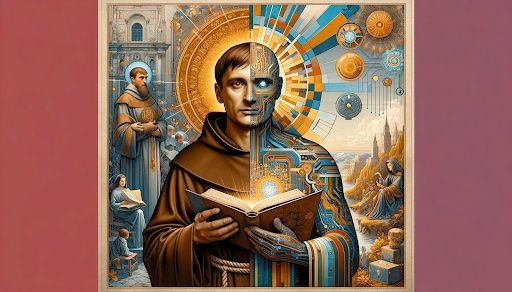- Feb 5, 2002
- 166,616
- 56,252
- Country
- United States
- Faith
- Catholic
- Marital Status
- Married
- Politics
- US-Others
What would Thomas Aquinas think of artificial intelligence (AI), and what does a large language model think of Thomas Aquinas? According to one German theologian, the Catholic saint and doctor of the Church can contribute to contemporary discussions about AI’s risks and its role in society.
In an interview with CNA Deutsch, CNA’s German-language news partner, Thomas Marschler, who holds the Chair of Dogmatics at the University of Augsburg, said: “Of course, Thomas could not have foreseen how the world’s technology would develop in the 800 years since his birth. No one in his time could have imagined that machines would one day be invented that would use computer technology to solve problems in a similar way to intelligent human beings or even surpass them.”
But while St. Thomas’ work contains no direct pronouncements on AI — nor on space travel or quantum physics, for that matter — the work of Aquinas sheds a light on AI’s profound philosophical and ethical aspects, the German theologian said.
“For instance, when the phenomenon of artificial intelligence is used as a strong argument in favor of a naturalistic view of humans — here Thomas can save us from erroneous conclusions with his insights into the nature of the spirit-soul and its abilities, into the uniqueness of spiritual consciousness and its personal carrier,” Marschler told CNA Deutsch.
Continued below.

 www.catholicnewsagency.com
www.catholicnewsagency.com
In an interview with CNA Deutsch, CNA’s German-language news partner, Thomas Marschler, who holds the Chair of Dogmatics at the University of Augsburg, said: “Of course, Thomas could not have foreseen how the world’s technology would develop in the 800 years since his birth. No one in his time could have imagined that machines would one day be invented that would use computer technology to solve problems in a similar way to intelligent human beings or even surpass them.”
But while St. Thomas’ work contains no direct pronouncements on AI — nor on space travel or quantum physics, for that matter — the work of Aquinas sheds a light on AI’s profound philosophical and ethical aspects, the German theologian said.
“For instance, when the phenomenon of artificial intelligence is used as a strong argument in favor of a naturalistic view of humans — here Thomas can save us from erroneous conclusions with his insights into the nature of the spirit-soul and its abilities, into the uniqueness of spiritual consciousness and its personal carrier,” Marschler told CNA Deutsch.
Continued below.

What would Thomas Aquinas make of AI?
According to one German theologian, the Catholic saint and doctor of the Church can contribute to contemporary discussions about AI’s risks and role in society.
